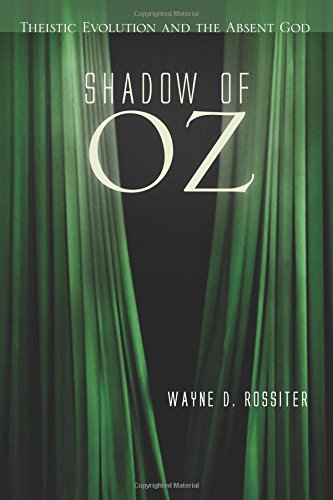
From Waynesburg U biology prof Wayne Rossiter, author of Shadow of Oz: Theistic Evolution and the Absent God, a question about claims for fine tuning of the universe:
My major concern with arguments from fine-tuning in cosmology is, how do we really get from from observations of precision to statements of probability? To say that something is precise is not to say that it is improbable. Those are two different things.
As a third quick analogy, if we studied the fall patterns of icicles from the roof of my home, we might find that their placement is incredibly precise. Given the vast surface area a given icicle could fall on (my yard, the road, my neighbor’s yard, etc.), the fact that they consistently fall within a very narrow area directly below the edge of the roof (they more or less fall straight down) seems absurdly precise. Absurdly precise, if it was logical to entertain the possibility of icicles falling in ways other than straight down. But the presence of gravity and the lack of strong winds make this highly precise phenomenon highly probable. Said plainly, it would be absurd to treat the falling of an icicle straight down and the falling of it laterally into my neighbor’s yard as equally likely.
But, I think that’s the sort of assumption being made in the argument from cosmological fine-tuning. To say that such-and-such a physical parameter rests upon a razor’s edge does tell us something. It tells us that any small change in the setting of that parameter would lead to a universe drastically different from the one we live in, and likely one that could never even produce material objects (let alone life) as we understand it. Fair enough. I agree. What it doesn’t tell us is how likely any of those other settings are. More.
Thoughts?
See also: Copernicus, you are not going to believe who is using your name. Or how.
Follow UD News at Twitter!